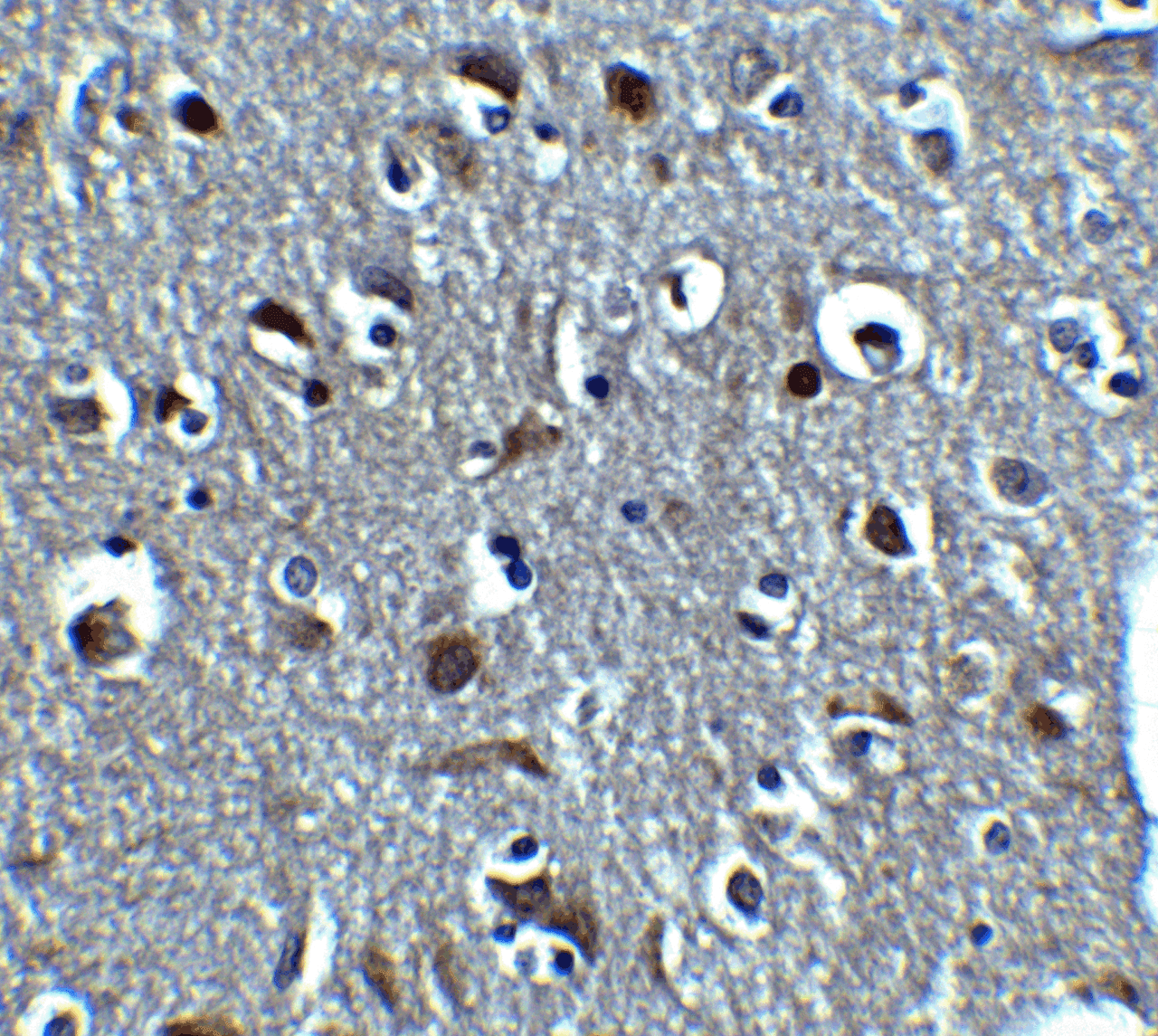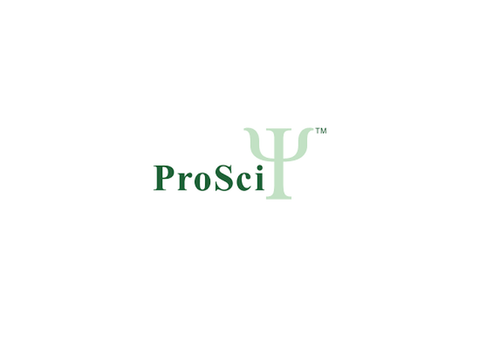Product Description
RLN3 Antibody | 8181 | ProSci
Host: Rabbit
Reactivity: Human
Homology: Predicted species reactivity based on immunogen sequence: Mouse: (89%) , Rat: (84%)
Immunogen: RLN3 antibody was raised against a 19 amino acid peptide near the center of human RLN3.
The immunogen is located within amino acids 80 - 130 of RLN3.
Research Area: Signal Transduction, Neuroscience
Tested Application: E, WB, IHC-P, IF
Application: RLN3 antibody can be used for detection of RLN3 by Western blot at 1 - 2 μg/mL. Antibody can also be used for immunohistochemistry starting at 5 μg/mL. For immunofluorescence start at 20 μg/mL.
Antibody validated: Western Blot in human samples; Immunohistochemistry in human samples and Immunofluorescence in human samples. All other applications and species not yet tested.
Specificiy: RLN3 antibody is human specific. RLN3 antibody is predicted to not cross-react with other members of the Relaxin protein family.
Positive Control 1: Cat. No. 1303 - Human Brain Tissue Lysate
Positive Control 2: Cat. No. 10-301 - Human Brain Tissue Slide
Positive Control 3: N/A
Positive Control 4: N/A
Positive Control 5: N/A
Positive Control 6: N/A
Molecular Weight: Predicted: 16 kDa
Observed: 16 kDa
Validation: N/A
Isoform: N/A
Purification: RLN3 antibody is affinity chromatography purified via peptide column.
Clonality: Polyclonal
Clone: N/A
Isotype: IgG
Conjugate: Unconjugated
Physical State: Liquid
Buffer: RLN3 antibody is supplied in PBS containing 0.02% sodium azide.
Concentration: 1 mg/mL
Storage Condition: RLN3 antibody can be stored at 4˚C for three months and -20˚C, stable for up to one year.
Alternate Name: Relaxin-3, RXN3, H3, ZINS4, INSL7
User Note: Optimal dilutions for each application to be determined by the researcher.
BACKGROUND: Relaxin-3 (RLN3) is a member of Relaxin family, a group of endocrine and autocrine/paracrine hormones that belong to the insulin gene superfamily (1, 2) . RLN3 can bind to and activate three relaxin-family peptide receptors: RXFP1, RXFP3, and RXFP4 (3) . In contrast to the widespread expression of the related proteins RLN1 and RLN2, RLN3 is predominantly expressed in brain and to a lesser extent in the thymus, kidney and spleen (1) . RLN3 has been suggested to play a role in feeding, metabolism, stress, arousal, learning, and memory (4) .
 Euro
Euro
 USD
USD
 British Pound
British Pound
 NULL
NULL












